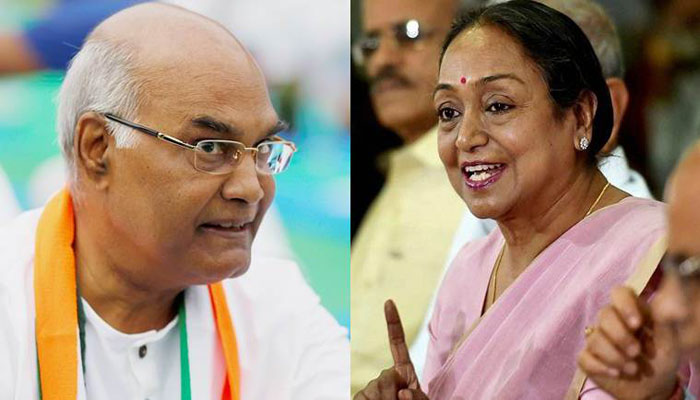TRENDING TAGS :
Presidential Poll: Highest turnout ever with almost 100 per cent voting
New Delhi: The election to choose India's 14th President saw almost 100 per cent voting on Monday with Lok Sabha Secretary and Returning Officer Anoop Mishra terming it "probably the highest turnout ever".
Mishra said a total of 717 MPs and five MLAs were supposed to cast their votes at Parliament House. Of these, 714 MPs and four MLAs voted here.
He said that 10 states - Arunachal Pradesh, Assam, Bihar, Chhattisgarh, Gujarat, Haryana, Himachal Pradesh, Jharkhand, Nagaland, Uttarakhand, and the Union Territory of Puducherry - recorded 100 per cent voting, and added that the rest of the states also recorded "almost 100 per cent" voting.
Mishra said the final figures from four states -- Andhra Pradesh, Jammu and Kashmir, Manipur and Tripura -- were still awaited.
Voting was held in 32 polling stations -- one in Parliament House and rest one each in state legislative assemblies.
Polling started at 10 a.m and ended at 5 p.m.
A total of 776 MPs and 4,120 MLAs were eligible to vote. The total value of votes of the electoral college is 10,98,903.
The ballot boxes from the states will be brought to Delhi for counting on July 20. Results will be declared that day.
NDA's candidate Ram Nath Kovind -- former Bihar Governor -- has an advantage over Meira Kumar -- a former Lok Sabha Speaker -- as the numbers are stacked in favour of the ruling NDA.
The BJP and allies have nearly 63 per cent of the vote while the Congress-led opposition has a little over 35 per cent. Independents and other smaller parties, who have not made their choice known, have two per cent.
President Pranab Mukherjee demits office on July 25.
- IANS



